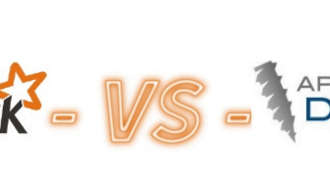In recent years, organized sports have been steadily changed by big data. The news programs and sports updates shown on television have been made to be more entertaining, partly because of research conducted and the information analyzed. This information is usually gained from viewers and the wider public.
More sports companies are likely to invest in big data in the future. The sports analytics market will be worth $10 billion by 2028.
Many people are unaware of the importance of big data or even what it is. In simple terms, big data is a term used to describe large volumes of data that are difficult to manage. This data may overwhelm businesses every day in structured or unstructured forms. Smart organizations use this data to improve their business models and make life better through analysis.
When it comes to sports, big data plays an essential role in the execution of competitive events and audience engagement. For instance, the branding and marketing experts of the Superbowl would benefit from big data when planning the promotion and organization before it takes place. Kenneth Taylor wrote an insightful article on the ways that big data is transforming the Superbowl.
It is also how a skate manufactures may begin to offer wide roller skates. Requests and searches for a particular product would adjust the way organizations do business after they have analyzed consumer information. Sport is no different.
Big Data and Skating
Data analytics technology has been applied to the skating industry, especially when it comes to scouting. Stats and pure numbers have become invaluable to talent prospecting in recent years, as companies are moving away from traditional scouting which depends on the evaluation of strength, speed, agility and other traits. Sport management professionals are now starting to see the benefit of analyzing large amounts of readily available data.
Big Data and Sports Broadcasting
Sports broadcasting and commentary has been evolving for some time. Sports Programming can now engage the viewer by creating a more compelling viewing experience instead of simply reporting the statistics and facts. Many broadcasters rely on statisticians to relay information about athletic performance. This information is more often an explanation in relation to other players. Easy to understand charts and graphs may also be used to explain and analyze the data.
Big Data and Sporting Strategies
Team or individual sports need good strategies to be successful. On a professional level, athletes must rely heavily on strategy especially as it relates to competition and opposing teams. Big data allows coaches to analyze winning strategies and weaknesses of the competition. It also allows coaches to analyze the performance of the team as a whole based on their history of wins and losses. Coaches are also able to create unpredictable strategies based on what they have done before thereby giving them the elements of surprise in upcoming games.
Audience Engagement
Revenue can be increased by engaging fans which is why broadcasters along with sports officials usually look to engage their audiences thereby increasing views and earnings. Big data has aided this endeavor greatly because of fantasy sports. The truth is that data analytics helps companies understand their customers.
Because of fantasy sports fan engagement has been increased and become more profitable across any sports you can think of. Fantasy sports allows the participant to create virtual franchises that are professional. These virtual franchises are based on actual athletes. For example, fantasy football can account for at least 25 million participants that are active and mostly reside in the US.
With sport analytics and the analysis of audience engagement, organizers are able to make life game experience has more enjoyable while also maintaining and increasing the sponsorship and participation of fans.
Athlete Performance
Big data can help athletes track and improve their performance, especially for ultra-competitive sport at the Olympic level. Many of these athletes train full time and will try just about anything to increase their performance. This is where big data comes in.
Coaches can now use training data on younger athletes with the aim of figuring out why elite athletes succeed. Coaches and athletes can learn about the most important element to focus on and train accordingly. They can also learn about the obstacles faced by elite athletes when training and know beforehand how to treat with them.
Coach Decisions
Teams now use big data to make crucial decisions about team players and who should be recruited. Data analysis on past players can determine if future ones are the right fit. For instance, the movie Moneyball portrays a coach who uses data to find undervalued players who are quite talented. This practice is commonplace in sports like basketball cricket, soccer, and football.
To Sum It All Up
Big data is being used all around the world and not just in sports. However, we have barely scratched the surface when it comes to its application. Experts predict that big data will be used much more extensively. The data collection methods are also improving with the popularity of apps and other technological advancement. Big data analytics seems as if it is here to stay, so we can expect to see it more prominently in the skating field as well.










